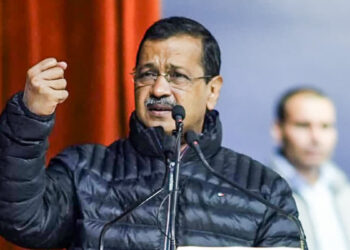Sivaganga, Tamil Nadu – June 29, 2025: The recent death of a 27-year-old man, Ajith Kumar, in police custody in Tamil Nadu’s Sivaganga district has ignited widespread protests and renewed concerns about police brutality under the Dravida Munnetra Kazhagam (DMK) government led by Chief Minister M.K. Stalin. The incident has fueled criticism of the state’s administration, particularly its handling of law enforcement, as Tamil Nadu heads toward the 2026 state elections.
Ajith Kumar, a temporary security guard at a local temple, was taken into custody by police for questioning in a theft case. According to his family, he was brutally beaten over two days by seven officers, leading to his death. The allegations have triggered public anger, with local shops shutting down in protest and opposition parties demanding accountability.
Opposition leaders, including Tamil Nadu Bharatiya Janata Party (BJP) president Nainar Nagenthran and All India Anna Dravida Munnetra Kazhagam (AIADMK) leader Edappadi K. Palaniswami, have condemned the incident. Nagenthran called for immediate intervention by Chief Minister Stalin, while Palaniswami demanded a judicial probe and compensation for Kumar’s family, accusing the DMK of failing to control police excesses.
The incident is the latest in a string of custodial deaths in Tamil Nadu, with reports indicating at least 24 such cases since 2022 under DMK rule. Human rights groups, such as People’s Watch, have accused the government of allowing a “pattern of unchecked custodial violence and extrajudicial killings.” The group highlighted 19 deaths in 16 alleged police encounters since the DMK came to power in 2021, raising concerns about systemic issues within the state’s police force.
Chief Minister Stalin, who also oversees the state’s Home Department, has faced criticism for his silence on the Sivaganga case. Opposition leaders and activists point to past incidents, such as the 2020 Sathankulam custodial deaths, where Stalin, then in opposition, was vocal in condemning police brutality. His lack of response now has led to accusations of inconsistency and poor governance. Posts on X reflect growing public frustration, with some calling for Stalin’s resignation and others questioning why he has not addressed the rising number of custodial deaths.
The DMK government has faced similar criticism in the past. In 2022, after the custodial death of a Chennai man named Vignesh, Stalin initially defended the police but later ordered compensation when evidence of torture emerged. Other cases, including the 2023 Ambasamudram incident where an officer allegedly tortured suspects, have also drawn scrutiny, with critics arguing that the government’s response—often limited to suspensions or transfers—lacks real accountability.
As Tamil Nadu approaches the 2026 assembly elections, the custodial death controversy is adding to the challenges facing the DMK. The party, which won a landslide victory in the 2021 state elections and all 40 Lok Sabha seats in 2024, is now grappling with accusations of administrative lapses and growing anti-incumbency sentiment. Political analysts suggest that the opposition, including the AIADMK-BJP alliance and actor Vijay’s Tamilaga Vettri Kazhagam (TVK), could capitalize on these issues to challenge the DMK’s dominance.
The Sivaganga incident has also sparked broader debates about police reform in Tamil Nadu. Activists are calling for stricter laws to prevent custodial torture and better oversight of law enforcement. “Tamil Nadu needs genuine reform to stop this cycle of violence,” said Kamal Raj, a human rights lawyer with People’s Watch. “Justice for victims like Ajith Kumar is essential to restore public trust.
As protests continue and pressure mounts, all eyes are on Chief Minister Stalin to address the crisis. His response—or lack thereof—could shape public perception and influence the DMK’s prospects in the upcoming elections. For now, the people of Tamil Nadu are demanding answers, accountability, and an end to custodial violence in their state.





































